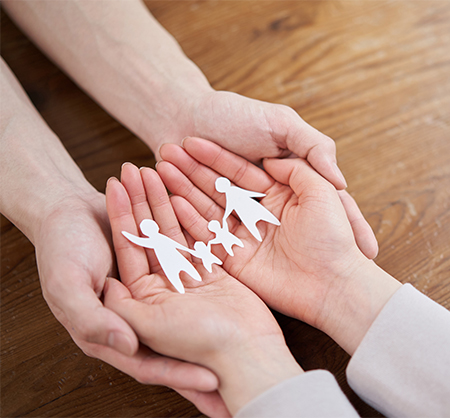 Adopting a child brings joy and grief.
Adopting a child brings joy and grief.
If you are an adoptive parent, you know that adoption is both beautiful and heartbreaking – and some situations are both at the same time.
I remember when my daughter took her first steps like it was yesterday. She was so proud of herself – smiling and giggling. She knew that she had done something extraordinary. I felt overcome with joy, pride, and a looming sorrow.
The happiness I felt by being able to witness such a monumental event became overshadowed by grief for her and her birth mom being unable to witness this groundbreaking event.
This dynamic would play itself continuously throughout the past years – and still does. It is an experience that only an adoptive parent can uniquely understand.
And what about your grief?
You may grieve the opportunity to have a biological child and struggle with the emotions and pain surrounding infertility.
As an adoptive parent to five children, I understand the challenges that you face. I know that it is often difficult to reach out to friends or family members because you “chose” to be an adoptive parent, and to some, that negates your right to struggle or complain about how hard parenting is.
So, you bottle it up and keep it to yourself. All this bottling up makes you feel even more isolated in your parenting journey, a time when we need more support and camaraderie than ever.
Parenting children through adoption is filled with many unique situations and requires a different set of parenting skills and superpowers.
 Adoption in and of itself is traumatic to the child.
Adoption in and of itself is traumatic to the child.
No matter how loving and caring of an environment you provide for them, trauma can show itself in many forms of behavior. Being able to understand and navigate the traumatic behavior is something we can work on in therapy.
It is also essential to explore how attachment affects the relationship between you and your child. Learning ways to strengthen attachment can be life-changing and help you relate more closely and deeply with your child.
Navigating relationships with birth parents and being asked deep questions that seem to come out of nowhere and at the most unexpected times about birth families and birth stories are other situations unique to adoptive parents.
When dealing with trauma and establishing the right relationship with your adopted child, you must have a provider that can relate to these experiences.
Transracial and transcultural adoptions can bring up issues.
Sometimes, these issues are ones you didn’t expect and can become confusing. Your family may struggle to fit into the community.
You try to make the best choices to immerse your child in their native culture, but you don’t always feel welcome.
How do you respond? How do you center your child’s needs while also recognizing your struggles? How do you handle the stares and questions about why your child doesn’t look like you? How do you help your child navigate these questions? How do you honor their story and your own?
Therapy can make a difference.
Therapy provides a place to bring up these challenges without fear, shame, or judgment.
This place is where you can honestly speak of the joys and sorrows and learn the tools and skills to be your best parent.
As a therapist with personal and professional experience in dealing with the challenges of being an adoptive parent, I am here to help you reduce the grief you might feel and learn to create a meaningful relationship with your adopted child.
Please get in touch with me today for more information on how I can help.
